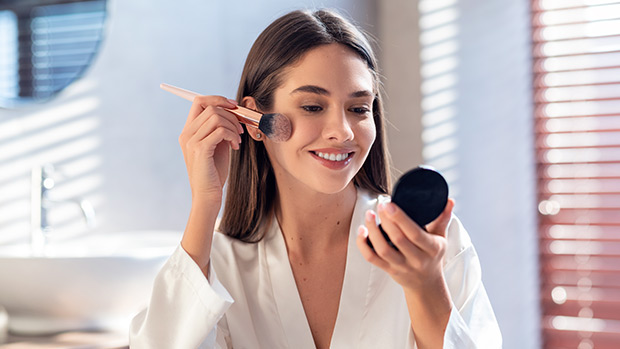Beauty for Beginners: How To Contour Using Make-up

Create the illusion of sharper cheekbones, a slimmer nose, and a more sculpted jawline with the magic of contouring.
Makeup has the incredible power to enhance our features and bring out our natural beauty. One technique that has gained immense popularity in recent years is contouring. By strategically using shadows and highlights, contouring can sculpt and define the face, creating the illusion of sharper cheekbones, a slimmer nose, and a more sculpted jawline. In this blog, we will guide beginners through the art of contouring, providing step-by-step instructions on how to achieve a beautifully sculpted face using makeup.
The Basics
Contouring involves using makeup shades that are darker and lighter than your natural skin tone to create depth and dimension on specific areas of the face. The darker shades create shadows, which help to sculpt and define, while the lighter shades bring forward and highlight the features.
To begin, start with a clean, moisturized face. Apply a primer to create a smooth base for your makeup. Choose a foundation that matches your skin tone and apply it evenly all over your face and neck.
Products
For contouring, you will need a contour shade that is a few shades darker than your skin tone and a highlight shade that is a few shades lighter. You can find good options for colors in most cream contour palettes. Opt for matte products, as shimmery ones can make the contouring appear unnatural. You will also need a contour brush, a blending brush, and a powder or cream brush.
Technique
To contour effectively, identify the areas of your face that you want to sculpt and define. Common areas include the hollows of the cheeks, the temples, the jawline, the sides of the nose, and the edges of the forehead. Understanding your face shape will help you determine the specific areas you want to contour.
When applying the contour shade, use a contour brush to create shadows in the desired areas. For example, suck in your cheeks and apply the contour shade just below the cheekbones. Blend it upwards towards the ears using gentle, circular motions with the contour brush. Similarly, apply the contour shade to the sides of your nose, along the jawline, and along the hairline if desired. Blend each area carefully to avoid any harsh lines.
To highlight, use the highlight shade on the areas you want to bring forward. Apply it on top of your cheekbones, down the center of your nose, and on your cupid’s bow (the curve on your upper lip). Blend the highlight shade gently using a blending brush to ensure a seamless transition between the contour and highlight.
Blending is key to achieving a natural-appearing contour. Use a clean blending brush or a damp makeup sponge to blend the contour and highlight shades, ensuring there are no visible lines or harsh edges. The goal is to create a smooth and well-blended look.
To set your contour and ensure it lasts all day, lightly dust a translucent powder or a contour powder in a matching shade over the contoured areas. Use a powder brush to apply the powder lightly and evenly. You can also opt for a setting spray as well with a matte finish.
Contouring is an art that requires practice, so don’t be discouraged if it doesn’t look perfect on your first try. With time and patience, you’ll master the techniques and create sculpted looks that enhance your natural beauty.
Contouring can transform your face, accentuating your best features and adding definition. By following these step-by-step instructions, even beginners can master the art of contouring using makeup. Through experimenting with different shades and techniques, you will find what works best for your face shape and achieve your desired look. The power of makeup allows you to embrace your creativity and enjoy the process of enhancing your natural beauty.